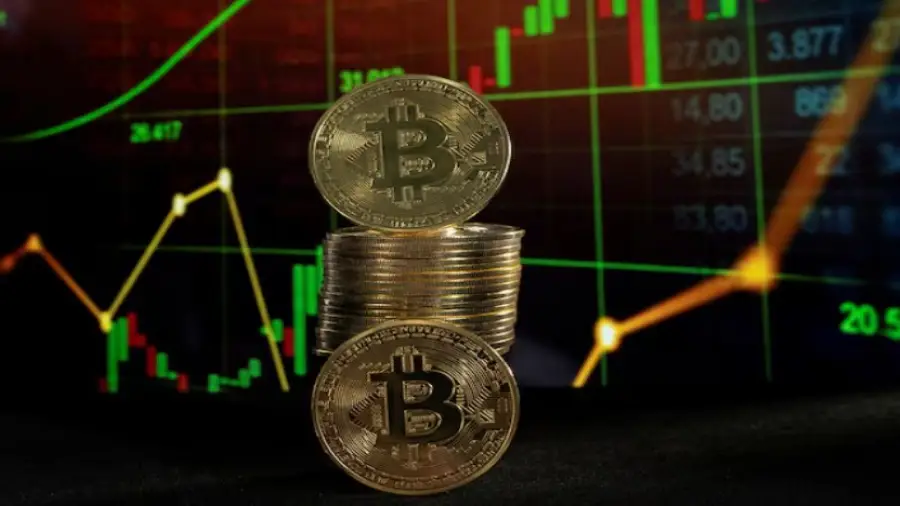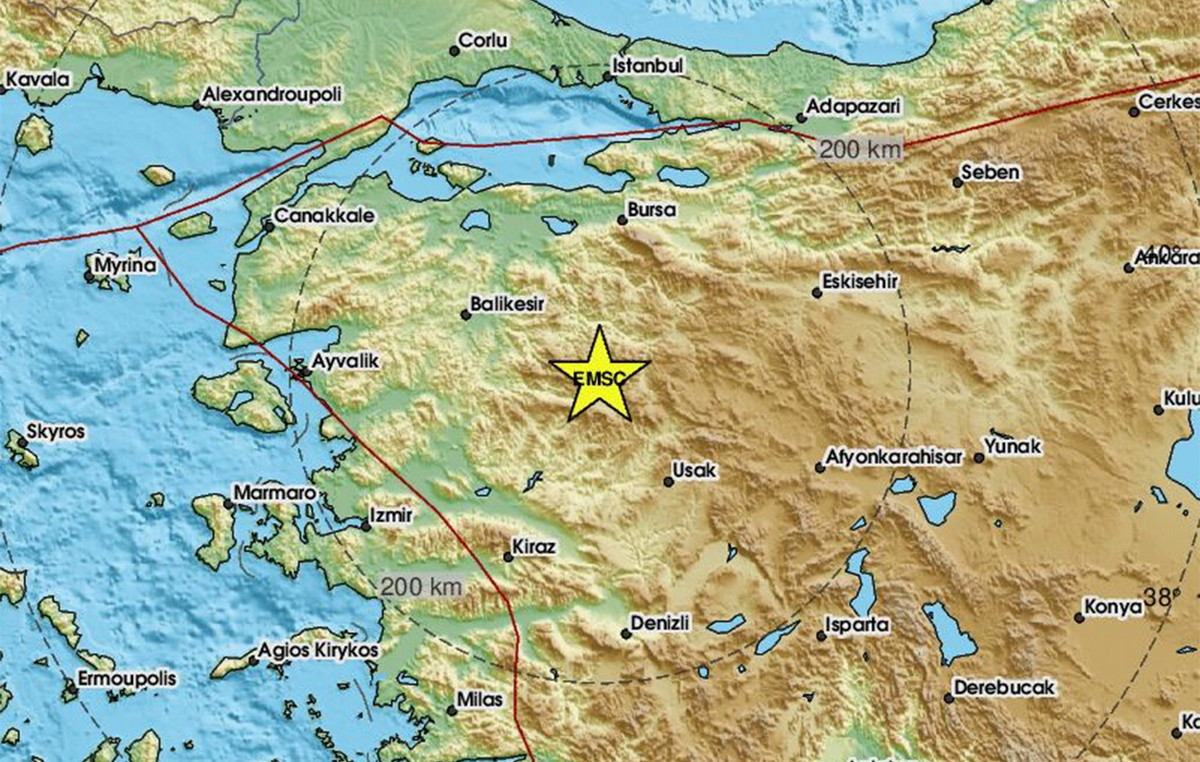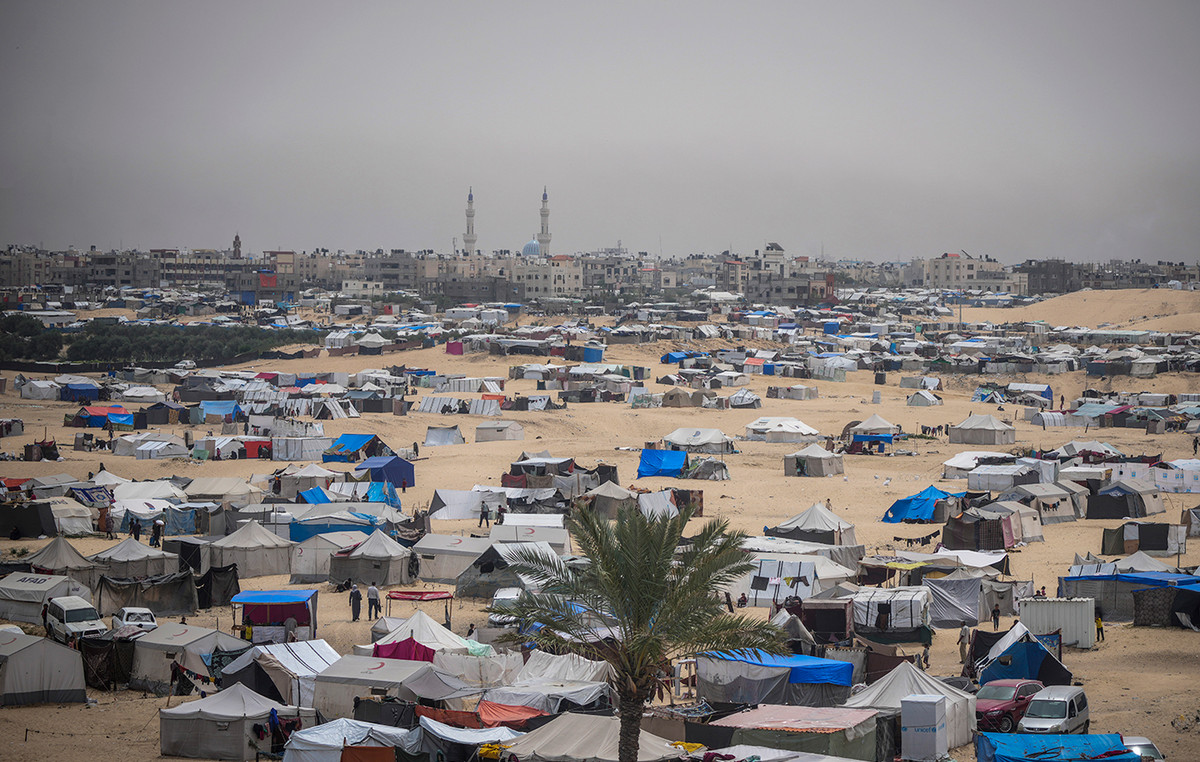There are only a few items in Hanna Ayyad’s fridge these days. The Cairo fruit vendor has restricted his family’s diet as inflation, triggered by the war in Ukraine, soared in Egypt.
“Now we buy new clothes every two holidays,” he told CNN . “We can go without meat, buying food once a month, and we can buy chicken two or three times a month, it’s not like before.”
Customers can also pay only a fraction of what they used to buy, lowering their daily income.
“Some people used to buy 5kg or 10kg of fruit – now they can buy 1kg or 2kg at most”, he says. It takes him days to sell the same amount of products he used to sell in a day.
Egyptian households of all income levels are seeing their purchasing power rapidly dwindle. The economic crisis raises the prospect of protests in the country where a regime was toppled just a decade ago in an uprising that called for “bread, freedom and social justice”.
In recent months, dozens of people have protested over delays in new car deliveries caused by import restrictions and the devaluation of the local currency. Groups were created on Facebook to find local alternatives to pet food after imports were curbed, and poorer Egyptians, like vendor Ayyad, cut back on their groceries purchases.
Credit rating agency Moody’s warned in May of “social and political risks” as it downgraded Egypt’s economic outlook for the year from stable to negative. And the government appears to share those concerns.
In anticipation of the protests, President Abdel Fattah el-Sisi initiated a national dialogue with opposition figures, a change of direction from a crackdown on dissent that has kept thousands of people behind bars for years.
Wheat import prices double
Egypt’s official inflation rate stood at 14.7% in June, up from around 5% in the same period last year, but consumers say prices have soared beyond that number since Russia’s invasion of Ukraine began in February.
On the other side of the capital, at a luxury supermarket, Haya Aref looks for cheaper local alternatives on her shopping list. Previously, she noticed a 10% to 15% increase in prices every six to eight months, but the price increases have become more frequent and higher now, she says.
“I used to buy an international brand [de cereais] which probably cost around 70 or 80 Egyptian pounds (about US$4) which has now risen to 250 (US$13),” says the 23-year-old architect. She cut out protein and snacks to meet her monthly budget. For her, locally grown vegetables have become an affordable and healthy option.
The war in Ukraine has brought uncertainty to global grain markets and pushed up prices. Egypt, which depends on Russia and Ukraine for 80% of its wheat imports, now pays $435 a ton compared to $270 it paid last year, according to the government.

Tourism affected
The invasion also crippled Egypt’s tourism industry. Russian and Ukrainian tourists used to make up a third of the country’s annual visitors, but those numbers have dropped.
At a time when the economy was barely recovering from the slowdown spurred by the Covid-19 pandemic, the war has set its enduring challenges on the upswing.
A rise in interest rates in more stable markets like the United States has taken about $20 billion out of Egypt, according to credit rating agency Standard and Poor’s.
“Over the last five to six years, we’ve relied a lot on what we call hot money. I call them hidden external debts”, explains economic analyst Salma Hussein. “When you have a very profitable rate of return on [a dívida do governo], you are inviting people from all over the world to the party. These people are all the time near the party’s exit door, whenever something shakes or changes, they are the first to leave.”
That left the government reeling under a cash and debt crisis worth 85% of the size of its economy. With foreign currency reserves falling, the government initiated a limited devaluation of the Egyptian pound that saw it lose 17% of its value in a matter of days in March.
Along with other government measures to control the flow of foreign exchange out of the country, this made imports very difficult, affecting both consumers and manufacturers.
“We should all know that the gravity of the crisis is not just in Egypt but across the world,” Prime Minister Mostafa Madbouly told a televised news conference in May, describing the government’s response to the economic crisis “without precedents”.
The direct and indirect impacts of the crisis will cost Egypt 465 billion pounds ($24.6 billion), including providing a social safety net for its citizens, he said.

The government is seeking more borrowing — primarily from the International Monetary Fund, which has lent Egypt $20 billion since 2016. Gulf Arab countries have poured billions of dollars into the country to replenish their dwindling foreign reserves since February.
A large part of the UAE’s money is coming in the form of investments and acquisitions of large Egyptian companies. The Egyptian government wants to see more of this. Madbouly outlined a plan to offer shares in state and military companies, including seven ports, to raise $40 billion over four years.
For Hussein, the economist, this is a quick fix to cover debt, without addressing the underlying problems. “I am not worried about the collapse of the Egyptian economy. I’m worried about more people collapsing below the poverty line,” she says.
One of the government’s main endeavors at the moment is to ensure that the wheat for its bread subsidies reaches 70 million Egyptians, in a country of about 100 million. The government is offering incentives for local farmers to grow wheat and sell it to the government to fill some of the expected gap in grain imports.
Ayyad, the street vendor, relies on basic subsidies and cash donations from the government. As his income declines, he is also reducing spending on his children’s education. He watches the news anxiously and fears the situation could get worse.
Aref, the architect, feels the Egyptians are in survival mode “and it’s getting a little scary.”
*With information from Magdy Samaan
Source: CNN Brasil
I am Sophia william, author of World Stock Market. I have a degree in journalism from the University of Missouri and I have worked as a reporter for several news websites. I have a passion for writing and informing people about the latest news and events happening in the world. I strive to be accurate and unbiased in my reporting, and I hope to provide readers with valuable information that they can use to make informed decisions.







